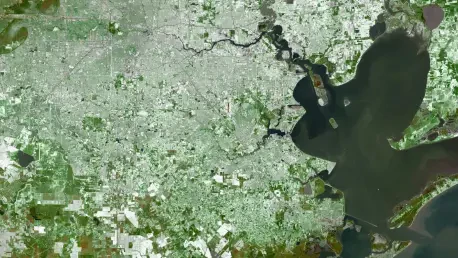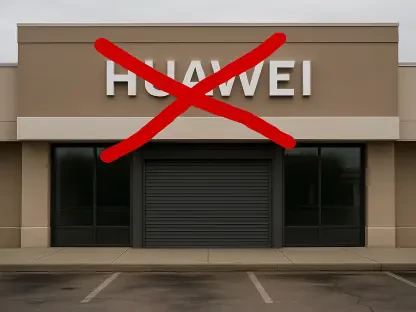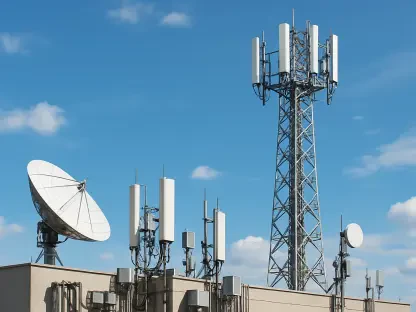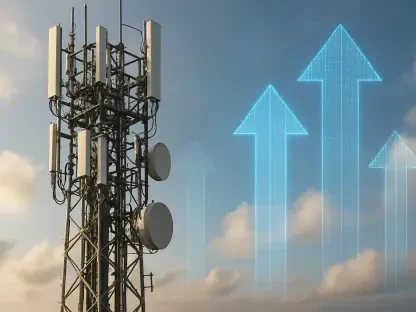Recent allegations from the US State Department have put Chinese company Chang Guang Satellite Technology under a critical spotlight. Accusations have surfaced suggesting that the company is providing high-resolution satellite data to the Iran-backed Houthi rebels, significantly bolstering their capabilities to execute attacks on US warships and allied vessels in the Red Sea. On April 17, US State Department spokesperson Tammy Bruce publicized these assertions, indicting the Chinese company for supporting terrorist activities. Chang Guang Satellite Technology, known for its Jilin-1 satellite constellation, refuted these accusations, labeling them as fabrications aimed at damaging their reputation.
Allegations and Denials
US State Department’s Stance
The US State Department contends that Chang Guang Satellite Technology is involved in supplying high-resolution satellite data that the Houthis are using to enhance their operational capabilities. The move has raised concerns about the strategic implications of such support, given the persistent conflict involving the Houthis since the escalation with Hamas. According to Bruce, the act of supplying satellite data to the Houthis represents an endorsement of terrorism. The matters of regional stability and security have become increasingly intricate, with satellite data playing a pivotal role in modern warfare.
Chang Guang’s Response
In response to the accusations, Chang Guang Satellite Technology denied any involvement in such activities, branding the claims as “completely fabricated and maliciously slanderous.” The company asserted its commitment to operating within global laws and standards. It emphasized the primary uses of their satellite constellation, which include agriculture and environmental protection. The allegations have highlighted the complex relationship between Chang Guang and the Chinese government, with the company having notable ties to the People’s Liberation Army. Despite this, Chang Guang insists on its adherence to lawful operations and non-involvement in military confrontations.
Geopolitical Implications of Satellite Data
China’s Expanding Satellite Capabilities
China’s pursuit of expanding its satellite capabilities has been seen as a challenge to US dominance in space technology. Chang Guang Satellite Technology’s growing satellite constellation raises concerns about potential military applications, especially given the current sensitive geopolitical climate. Recently, China established a three-satellite constellation in the Earth-moon region, a move indicative of its ambitious space programs. The expansion has the potential to reduce reliance on US satellite data, offering an alternative that may influence global data provider choices.
Regulatory Scrutiny by the US
US officials have taken a scrutinizing stance on the matter, urging entities to choose between using satellite data from US providers or Chinese alternatives. The allegations against Chang Guang have intensified the scrutiny, raising issues of national security and the ethical responsibilities of satellite data providers. The debate underscores the power and significance of satellite technology in contemporary geopolitics. The US zero-tolerance policy towards supporters of foreign terrorist groups like the Houthis further accentuates the complexities of the situation. This regulatory attention aims at ensuring that satellite data usage aligns with broader security interests and ethical considerations.
The Intersection of Technology and Politics
US Claims on Data-Driven Conflict
The US asserts that the enhancement of Houthi operational capabilities through high-resolution satellite data marks a noteworthy shift in conflict dynamics. Such data potentially provides insurgent groups with unprecedented levels of surveillance and targeting precision. The implications of this development extend beyond immediate conflict zones and resonate within the broader geopolitical scenario. The assertion reveals a growing concern over the role of advanced technology in fueling regional conflicts. Invariably, the US’s stringent security policies aim to mitigate any form of assistance to designated terrorist groups through technological means.
China’s Diplomatic Response and Satellite Ambitions
In his remarks on April 18, Chinese Foreign Ministry spokesperson Lin Jian stated a general unfamiliarity with the specifics of the allegations but emphasized China’s broader role in fostering regional peace and stability. Jian’s statement suggests a diplomatic balancing act, as China continues its satellite technology expansions while addressing international concerns. China’s ambitious satellite projects reflect the broader intent to diminish US hegemony in space technology. As the satellite landscape evolves, both countries find themselves in a contest for technological and geopolitical dominance. This delicate balance underscores the intricate interplay between diplomacy, technology, and military strategy.
Looking Forward
Recent allegations from the US State Department have placed the Chinese company, Chang Guang Satellite Technology, under intense scrutiny. The accusations claim that the firm has provided high-resolution satellite data to Iran-backed Houthi rebels. The data allegedly enhanced the rebels’ ability to carry out attacks on US warships and allied vessels in the Red Sea. On April 17, US State Department spokesperson Tammy Bruce made these assertions public, accusing the Chinese company of complicity in supporting terrorist activities. Chang Guang Satellite Technology, renowned for its Jilin-1 satellite constellation, has firmly denied these allegations, calling them fabrications intended to damage their reputation. They argue that the charges are baseless and part of a broader effort to tarnish their image. The controversy underscores the ongoing tensions and complex geopolitical dynamics, raising questions about the use of commercial satellite technology in conflict zones and the ethical responsibilities of the companies involved.









